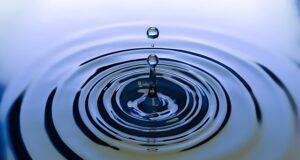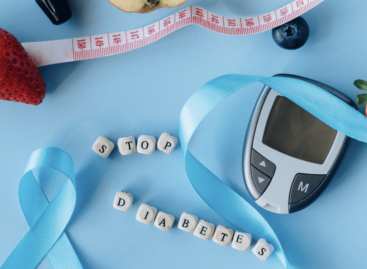How much should you drink in summer? – recommendation from the National Association of Hungarian Dietitians
Due to the hot summer days and increased physical exertion, it is especially important to pay attention to adequate fluid intake at this time, warns the Hungarian Dietitians’ National Association (MDOSZ) in its latest statement. According to experts, many people only reach for a glass of water when they are thirsty, even though thirst is one of the last signs of dehydration. Adequate water consumption not only improves well-being, but also performance and even health.
Our body works with water
 The human body is made up of more than 60% water – this substance is present not only in the blood, but also in the bones. The role of water is essential in regulating body temperature, metabolism and maintaining mental freshness. Even a 2% fluid loss can lead to fatigue, headaches or difficulty concentrating.
The human body is made up of more than 60% water – this substance is present not only in the blood, but also in the bones. The role of water is essential in regulating body temperature, metabolism and maintaining mental freshness. Even a 2% fluid loss can lead to fatigue, headaches or difficulty concentrating.
How much water should we drink?
According to the EFSA recommendation, women need at least 2 liters of fluid intake per day, and men 2.5 liters – calculated from all sources. The SMART PLATE® Hungarian recommendation recommends 8 glasses of drink per day, of which at least 5 should be pure drinking water. Sugary drinks, teas, and smoothies are recommended only as a color, in small quantities.
The recommended amount basically applies to sedentary work and room temperature – in case of physical activity, sports, pregnancy or breastfeeding, the need may increase to 3.3–4.8 liters.
Drink water too!
20–30% of the daily water intake can also be covered by food. Fruits, vegetables with a high water content – such as melons, cucumbers – or soups, and even boiled pasta and steamed rice also contribute to hydration. A fresh tomato pasta dinner, for example, can be an ideal choice on a hot summer evening.
Urine instead of thirst!
The most reliable indicator is not the feeling of thirst, but the color and frequency of urine. 7-8 light-colored urines per day indicate that fluid intake is sufficient. Experts recommend drinking a glass of water – about 2.5 dl – every hour.
The most sensitive: children and the elderly
Young children often “forget” to drink while playing, and the elderly often do not perceive thirst. In addition, their mobility is limited, and many avoid drinking so as not to have to go to the bathroom often. Chronic diseases or medications can also impair fluid balance, so they require special attention. It is important to often offer them water, unsweetened tea, lemonade, and foods with a high water content, such as soup.
Extra attention during illness
Fever, diarrhea, and vomiting are more common in summer – these are associated with extreme fluid loss. In such cases, water replacement is even more important to avoid dehydration, which in severe cases may require hospitalization.
Related news
Water table: water retention solutions in collaboration with nature
🎧 Hallgasd a cikket: Lejátszás Szünet Folytatás Leállítás Nyelv: Auto…
Read more >Related news
How does the forint exchange rate affect consumer prices?
🎧 Hallgasd a cikket: Lejátszás Szünet Folytatás Leállítás Nyelv: Auto…
Read more >HELL CITY has arrived, led by Michele Morrone
🎧 Hallgasd a cikket: Lejátszás Szünet Folytatás Leállítás Nyelv: Auto…
Read more >







